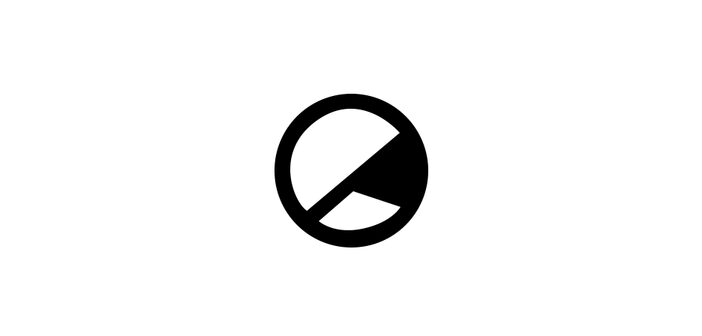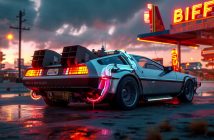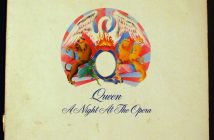Well, this makes me feel old. November 16th 2017 marks exactly ten years since Super Mario Galaxy was released in Europe.
A spiritual successor to the seminal Super Mario 64 and the underrated Super Mario Sunshine, Galaxy was the first mainline entry in the Mario series on the Nintendo Wii. And what an entry it was. Taken into space for the first time, Galaxy’s run-and-jump gameplay was not merely refined but continually re-inventing itself, too.
The plot set-up is mighty similar to what has come before: Bowser’s kidnapped Princess Peach (again!), and it’s up to Mario (Charles Martinet) to save her. Before he can, however, Bowser blasts him into space. Adrift in unfamiliar territory, Mario is rescued by star babies, called Lumas, and taken to their “mother,” a woman known only as Rosalina. Together, they work to restore Rosalina’s astral home, the Comet Observatory, so that Mario might have a shot at getting close to Bowser.
It’s silly, and never takes itself too seriously, but the characterisation is genuinely touching. Learning about Rosalina’s past, about how she went from lonely child to adoptive mother, is perhaps the closest a Mario game has gotten to pathos. Gameplay should always be the priority, but it was lovely to see Nintendo—a company who has often focused on their unwillingness to adhere to cookie-cutter game design—create something with narrative drive.
Galaxy was—and still is—a smorgasbord of design decisions that just work. Its dimension-switching, gravity-flipping, planet-leaping gameplay loop was a brazen lesson in creativity. Even “gameplay loop” seems inappropriate here, as the game is not content to repeat itself lest boredom set in. Want to ride a manta-ray? There you go! Want to ice-skate across a starscape? Go right ahead! Mario runs and jumps through them as he collects coins and Stars, but he also turns into a bee, a ghost, and even a spring. Lesser games would run with one or two of these ideas for their duration, but the gang at Nintendo EAD Tokyo tear these ideas away at the slightest hint of tedium. Novel gameplay mechanics are nothing without an environment to use them, however. Thankfully, the settings, whether they be gardens atop clouds or a celestial junk yard, are a delight to explore.
Amongst other attributes, Mario games are famed for their boss battles, and Galaxy continues that legacy; a walking dinosaur egg, a flaming octopus, and Bowser himself fill out Mario’s rogues gallery this time, with more fights that it would be criminal to spoil.
Ten years on, the controls feel as tight as ever. Some people rightfully drew issue with the inclusion of motion controls, but they are about as non-intrusive as they could be. Also, Galaxy may be trapped inside the Wii’s Standard Definition prison (we can pray for an HD remaster), but the stylised visuals and character silhouettes give the image a tangible depth. It’s only 480p, but who cares when it still looks this charming? Though it may not age as gracefully as The Legend of Zelda: The Wind Waker’s cel-shaded design, Galaxy proves that art style can go a long way in compensating for a console’s lack of horsepower.
And the music. With the sweeping violins of ‘Gusty Garden Galaxy’ and the tender piano of ‘Space Junk Galaxy’, Yokota and Kondo’s fully-orchestrated soundtrack stands proudly alongside Metroid Prime, Halo 3, and The Legend of Zelda: Ocarina of Time as an argument for videogame soundtracks being taken seriously. A male choir accompanies the obligatory final battle with Bowser, making the showdown feel like Mario’s most definitive yet.
Galaxy spawned an equally-acclaimed sequel, Super Mario Galaxy 2, three years later. And three weeks ago, a spiritual successor, Super Mario Odyssey, arrived on the Nintendo Switch to similar applause and enthusiasm. There’s a metric ton of Mario games, whether they be karting, football, party games, or 2D platformers, but the 3D platformer entries have often been the most assured in their capacity for fun. Galaxy is perhaps the finest example of the latter.
What started as a Nostalgic News article for Galaxy has become more of a flashback review, but if one more person can be convinced to play it… Super! Happy Birthday, Galaxy!
https://www.youtube.com/watch?v=VEIWhy-urqM




